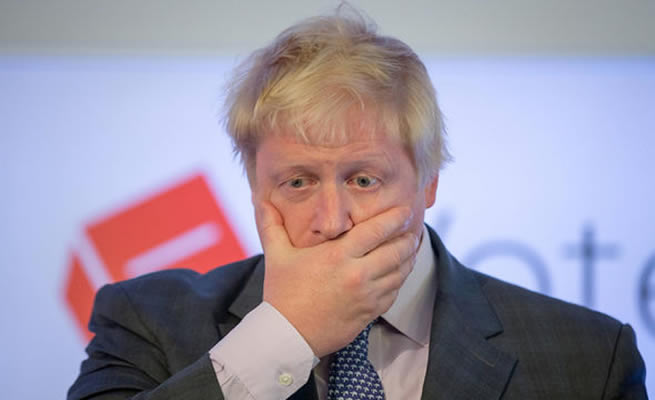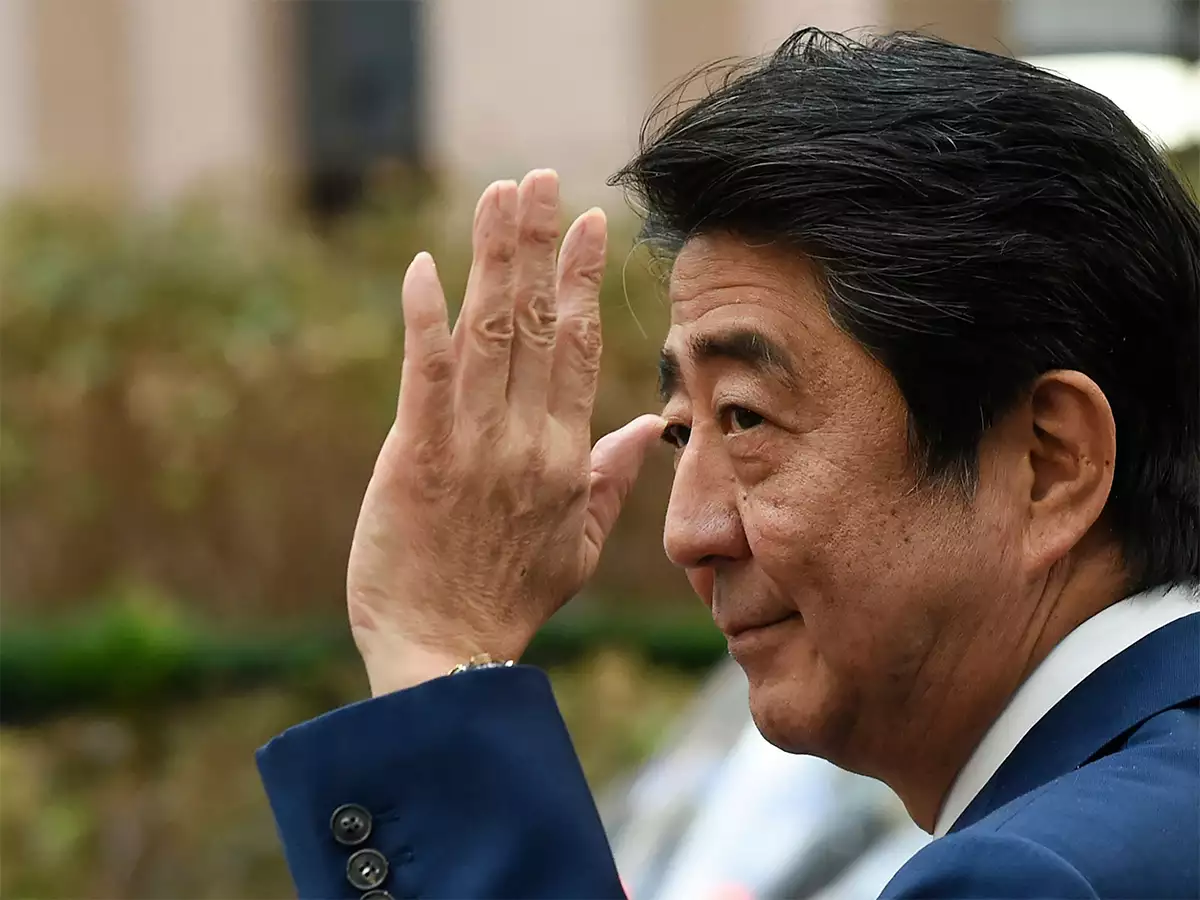
Boris Johnson’s lack of moral fiber has wreaked havoc on Britain’s unwritten constitution; the social contract between rulers and ruled; Britain’s position in the world and the country’s finances.
Boris Johnson is regarded by world leaders as a dangerous joke.
By Tom Arms
The rules, the law, other people… they were of little or no concern to Boris Johnson. At least not until this week when his contempt for parliamentary convention, constitutional law and common decency resulted in his being dragged kicking and screaming to the exit door of 10 Downing Street.
Boris Johnson’s lack of moral fiber has wreaked havoc on Britain’s unwritten constitution; the social contract between rulers and ruled; Britain’s position in the world and the country’s finances. The Conservative Party has been mortally wounded by the decision to elect him Party leader and to stand by him for three scandal-riven years.
He won them votes with his unruly mop of hair, boyish charm and extraordinary skill with the spoken and written word. But winning votes is only part of the job. A Prime Minister needs to be able to govern. Boris Johnson’s incompetence, laziness and skewed moral compass made him unfit for the tenancy of Downing Street.
The success of the British parliamentary system relies heavily on the “Good Chap” theory of Government. Politicians are expected to act with honesty and integrity. If they are caught in a lie—especially a lie to parliament—they have to be relied upon to do the honorable thing and resign.
This is not the law. It is a parliamentary convention which has been observed for centuries. But Boris is not a good chap. He is a bad chap. He cares not one jot for parliamentary convention. Parliament—as far as Boris was concerned—was an obstacle to be overcome rather than a political tool to be used.
For the past 50 years successive British prime ministers have tried to shift their role from that of “First Among Equals” in a cabinet of high-achieving individuals to a more presidential type of government. This meant circumventing parliament as much and as often as possible. Boris embraced this trend with vigour and disastrous consequences.
It started with British membership of the EU. His lies narrowly swung the British behind Brexit. But then when parliament balked at the terms he negotiated with Brussels he illegally attempted to prorogue the legislature. That was followed by effectively booting 21 rebel conservative MPs out parliament, thus ensuring that his post 2019-election majority would be comprised mostly of fawning acolytes.
The cabinet he appointed has—with a few exceptions—been chosen not on the basis of competence but on personal loyalty to Boris Johnson. It is generally regarded as one of the most—if not the most—mediocre cabinet in British history.
On the foreign policy front Boris has been a disaster. His oven-ready deal with the EU has emerged a half-baked at best by Boris’s insistence on tearing up the Northern Ireland Protocol and general tendency to use Brussels as a scapegoat for his problems. That in turn has stymied any hopes of the much-hyped US-UK trade deal to replace the EU and tarnished Britain’s reputation as a trusted negotiator and champion of free trade and international law.
Boris Johnson is regarded by world leaders as a dangerous joke. His sole success—albeit a significant one—has been in spearheading Western support for Ukraine. This policy started before Johnson became prime minister. It is certain to continue, whomever resides in 10 Downing Street.
Economically, Johnson has been ruinous. His claims to the contrary are laughable. Britain has the highest inflation and lowest growth of any G7 country, and it is expected to worsen. Almost all of the 52 resignations that forced Boris’s resignation focused on his lack of integrity. The stand-out exception was the letter from Chancellor of the Exchequer Rishi Sunak. He and the prime minister were due in the coming week to give a joint speech on economic strategy. The chancellor said their differences were too great. Sunak wanted lower taxes, borrowings and spending to ensure fiscal rectitude. Boris wanted lower taxes and higher spending financed by more borrowing. It was an unsustainable policy which—the chancellor knew—led to economic ruin. But it won votes in the impoverished north where the latest crop of narrowly-elected Johnsonite MPs were clinging to office.
But Boris’s economic policies were—at most—a secondary reason for his departure. He lied—repeatedly. And then he lied about his lies. Boris Johnson destroyed his credibility and in doing so severely damaged the machinery of British government. He should have resigned when caught the first time. He refused because he maintained that he had a personal presidential-type election mandate from the people. That is not how the British constitution works. The conservative party won the mandate in the 2019 election, not Boris Johnson the individual.
Whomever succeeds Boris Johnson faces a Herculean task. They must restore Britain’s place in the world; sort out Northern Ireland; develop a working relationship with the EU and US; deal with a cost of living crisis and restore the country’s finances. Most of all they must restore integrity in government and renew the social contract between the political class and the voters.
Boris Johnson is a keen admirer of Winston Churchill. He fancied himself as the 21st century reincarnation of the great wartime leader. Well, to slightly misquote Churchill, the departure of Boris is not the end of Britain’s problems. It is not even the beginning of the end. But it is perhaps the end of the beginning.
 World Review
World Review
- Shinzo Abe—Japan’s longest-serving prime minister who was assassinated on Friday—was best known for three things: His tough anti-Chinese stance; his efforts to beef up Japan’s military and Abenomics. The first secured him the ire of Beijing which he wore as a badge of honor. Of course, as soon as the news of the shooting crossed the East China Sea, the official Chinese line was shock, horror and dismay. But on social media Chinese nationalists were busy expressing their glee. One of the reasons for the Chinese dislike of Abe was his skewed view of history and pro-defense policies. On the former, Abe – in common with many other Japanese politicians—denied, ignored or underplayed his country’s atrocities during World War II. The Chinese retain bitter memories of the Japanese occupation of most of their country in the 1930s and during World War Two. They welcomed the constitutional post-war curbs on the Japanese defense forces which banned the Japanese from using war “as a means of settling disputes.”

Shinzo Abe Abe, a staunch nationalist, wanted to re-write the constitution and increase defense spending from one to two percent of the GDP. This policy has the support of Western governments who regard the restrictions on the world’s third largest economy as a post-war anomaly. Defense spending is a major issue in the current election. Shinzo Abe was one of the many world leaders who lent their name to an economic theory. Abenomics combined monetary easing by the central bank with increased government spending and structural reform. Its purpose was to end decades of economic stagnation. Abenomics had some success but not as much as Abe and the Liberal Democratic Party hoped. Like all politicians, Shinzo Abe enjoyed successes and suffered failures. But his greatest achievement was to be the tough man of Japanese politics at a time when the Japanese required a stiff political backbone.
- Vladimir Putin was blunt: We have just begun to fight, he told Russian parliamentary leaders this week. He then went on to blame the “collaborative West” for starting the war in Ukraine. It was the result, he claimed of a 2014 Western-supported military coup which ousted a pro-Russian government and launched a “genocide” in the Donbas Region. In the meantime, reports are emerging of tens of thousands of Donbas-based Ukrainians “disappearing.” Many of them are pro-Ukrainian journalists, academics, lawyers, politicians and government officials who have either vanished altogether or whose bodies have been discovered in vacant lots or outside their homes. Others are ordinary citizens who have been evacuated from the Ukrainian cities demolished by Russian artillery. Many of them are bussed to the Russian border where their documents are confiscated and they are dispatched for settlement in different parts of Russia. The saddest cases are the children who are placed in foster care or sent off for adoption without any attempt at contact with their Ukrainian families. Of course, these tactics are a common thread in Russian history. In 1828, The Russian Empire forced the resettlement of Armenians in the Nagorno-Karabakh region and sowed the seeds of conflict with Azerbaijan. During the Soviet years, the Siberian gulags were used as much as resettlement camps as prisons. In the war years, 400,000 Poles were sent East along with hundreds of thousands of dissident Lithuanians, Tatars, Finns, Estonians, Latvians and many more. According to files unearthed by researchers, by 1950, 2,572,829 people had been “resettled” by Soviet authorities. In modern times, the disappearance of Chechens, was condemned by Human Rights Watch as a crime against humanity. So, nothing new here.
- Meanwhile, In the Indonesian resort of Bali, the Russians have come under a nearly-united attack by G20 foreign ministers meeting there. The four hold-outs are China, host country Indonesia, South Africa and India. They don’t side completely with Russia, but they argue the West should accept some of the responsibility for failing to treat post- Cold War Moscow as a serious global player and by expanding NATO. Secretary of State Antony Blinken is in Bali to discount those arguments and ensure that sanctions are adhered to and to try and find a work-around to the current world food shortages caused by Russia’s invasion of Ukraine. His key meeting will be with his Chinese counterpart Wang Yi. So far the Chinese have pointedly failed to match their words of support for Russia with action. There are no signs of Beijing evading sanctions or supplying Putin with military hardware. Blinken will seek reassurances that China’s hands-off approach will continue. To encourage the Chinese, Blinken is expected to offer a summit between President Biden and Xi Jinping and the possibility of the lifting of some US tariffs on Chinese products. The latter move would have the added benefit of easing inflation in America. Blinken, by the way, has pointedly refused to meet with Russian summit attendee Sergei Lavrov who has dismissed the US Secretary of State’s attacks as “frenzied criticism.”
- While Blinken and Wang Yi prepared to meet in Bali, the heads of America’s FBI and Britain’s FBI, held an unprecedented joint press conference in London to warn Western businesses against Chinese perfidy. FBI director Chris Wray cautioned: “When you deal with a Chinese company know that you are also dealing with their silent partner the Chinese government and its Ministry of State Security (MSS).” The Chinese government, he added, “poses a more serious threat to Western businesses than many realise.” MI5’s David McCallum, said: “the Chinese Communist Party is interested in our democratic, media and legal systems. Not, sadly, to emulate them, but to use them for its own gain.” The two men also said that the MSS was trying to interfere in congressional elections in New York’s tenth congressional district where a Yang Xiong, a Tiananmen Square protester, is standing as a Democratic Party candidate.
________________________
 Tom Arms is foreign editor of Liberal Democratic Voice and the author of the recently-published book “America Made in Britain.”
Tom Arms is foreign editor of Liberal Democratic Voice and the author of the recently-published book “America Made in Britain.”